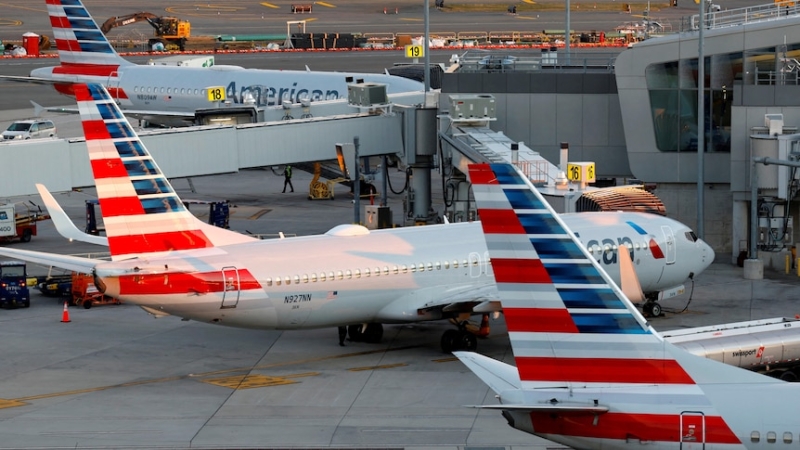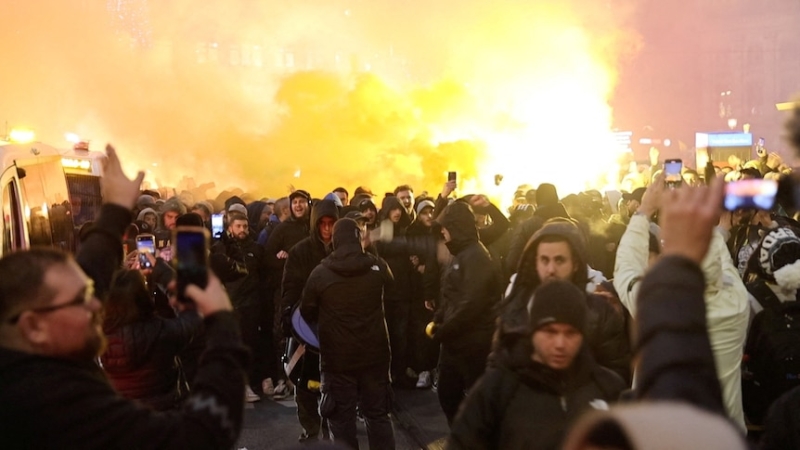Syria's de facto leader Ahmed al-Sharaa has brokered a deal with rebel factions to merge the groups under the new government. (Reuters: Ammar Awad)
In short:
Syria's new government has brokered a deal with some rebel factions to dissolve and merge with the defence ministry.
The country's de facto leader, Ahmed al-Sharaa, has said the HTS group which overthrew the Assad regime will not repress any minorities in the new administration.
What's next?
It is unclear if the deal includes the Kurdish-led rebel forces in Syria's north-east.
Some Syria's former rebel groups have agreed to join the new administration under a deal to dissolve their factions, the HTS-led government says.
Syria's de facto leader Ahmed al-Sharaa reached an agreement on Tuesday with former rebel faction chiefs to dissolve all groups and consolidate them under the defence ministry, according to a statement from the new administration.
Syrians find hope in uncertain times
Photo shows A crowd of young Syrian people including a woman in hijab gesture waving green, white and red flags around sunset

Prime Minister Mohammed al-Bashir said last week the ministry would be restructured using former rebel factions and officers who defected from ex president Bashar al-Assad's army.
Mr Sharaa will face the daunting task of trying to avoid clashes between the myriad groups.
The country's new rulers appointed Murhaf Abu Qasra, a leading figure in the insurgency that toppled Assad, as defence minister in the interim government.
Syria's historic ethnic and religious minorities include Muslim Kurds and Shi'ites — who feared during the civil war that any future Sunni Islamist rule would imperil their way of life — as well as Syriac, Greek and Armenian Orthodox Christians, and the Druze community.
Mr Sharaa has told Western officials visiting him that the Islamist Hayat Tahrir al-Sham (HTS) group he heads, a former al Qaeda affiliate, will neither seek revenge against the former regime nor repress any religious minority.
Syrian rebels seized control of Damascus on December 8, forcing Mr Assad to flee after more than 13 years of civil war and ending his family's decades-long rule.
Photos published by the state-run SANA news agency showed Mr Sharaa, surrounded by the heads of several armed factions — but not representatives of the Kurdish-led forces in Syria's north-east.
The meeting "ended in an agreement on the dissolution of all the groups and their integration under the supervision of the ministry of defence", said a statement carried by SANA and the authorities' Telegram account.
On Sunday, Mr Sharaa had said the new authorities would "absolutely not allow there to be weapons in the country outside state control".
That also applied to the Kurdish-led Syrian Democratic Forces, he said.
Last week, the military chief of Sharaa's Hayat Tahrir al-Sham — the Islamist group that spearheaded the offensive that toppled the Assad regime — told AFP that Kurdish-held areas would be integrated under the new leadership, and that "Syria will not be divided".
Reuters/AFP





